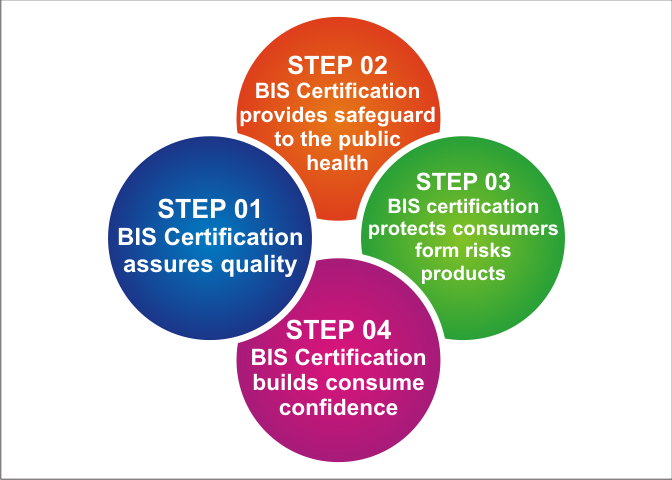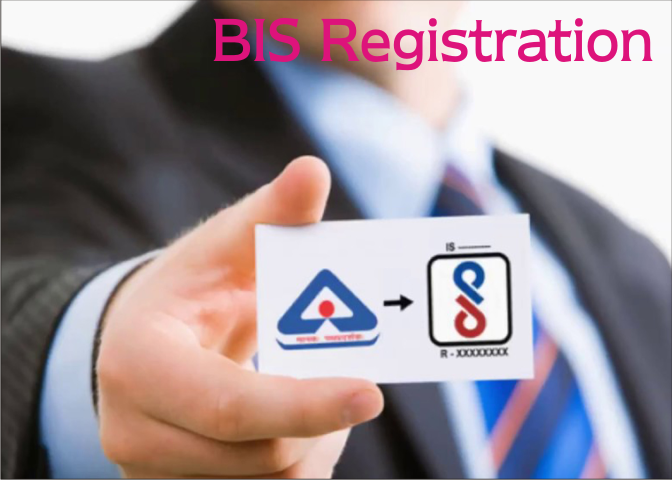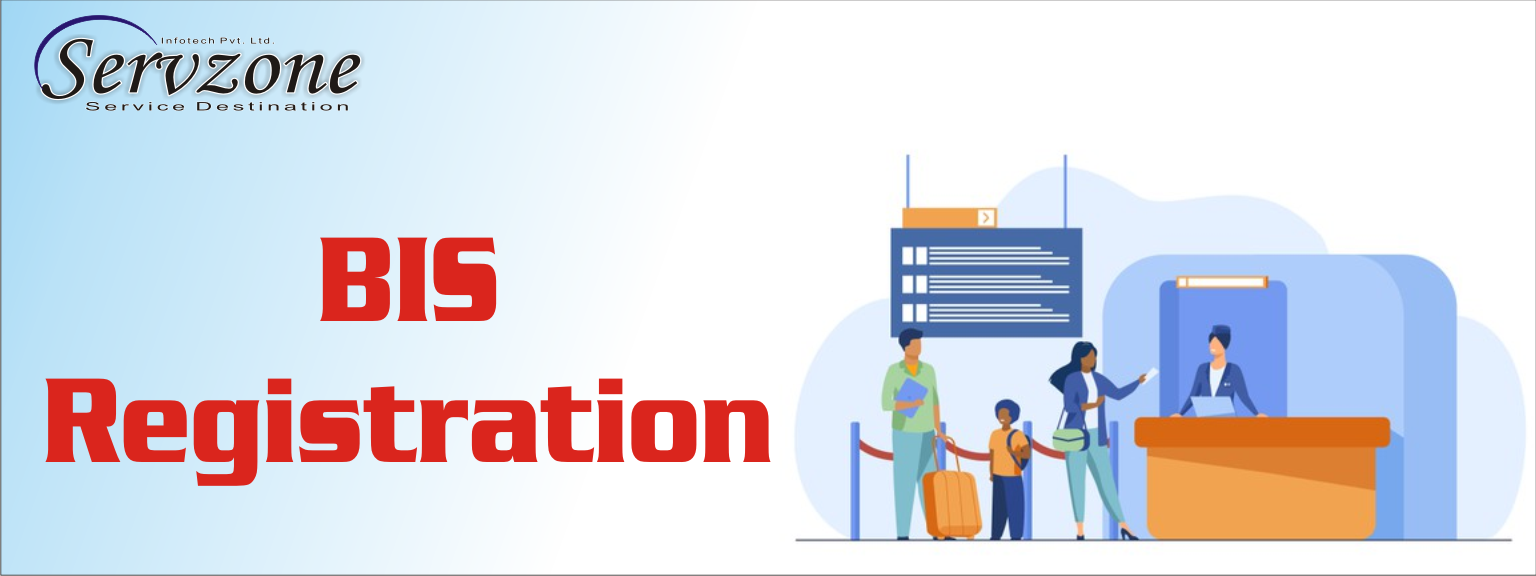Get Started With
servzone
Overview
BIS is a national body that ensures the quality, safety and reliability of products in India. The purpose of BIS is to examine samples of products when they are the initial and monitoring phase. BIS has a total of eight central, four regional and three branch laboratories in India.
BIS Registration Product Plan
The BIS Registration Product Plan is one of the largest schemes worldwide, comprising over 900 products with over 26500 licenses. This allows the manufacturer to use the popular ISI mark on their products which states that the product is pure and healthy. The BIS Registration Product Scheme also operates the Overseas Manufacturing Certification Scheme under which foreign manufacturers can be licensed to use the BIS standard mark.
Benefits
It is crucial for the manufacturer to obtain BIS registration as it involves the following factors-

- It provides protection to public health
- It provides product quality assurance
- It protects the consumer from hazardous products
- It also increases customer confidence.
Till now, over 350 BIS Registration have been granted for over 50 Indian standards in 40 different countries.
Types of BIS Registration Schemes
The BIS Registration for the product is categorized under different types of schemes which is as follows-
Normal Procedure for Domestic Manufacturer
The applicant needs to submit the BIS Registration or BIS Registration application along with certain documents and the requisite fees. After submitting the application an evaluation is carried out by a BIS officer where the samples are tested in the factory and drawn an independent testing report. And, if all things go well BIS Registration is provided where the sampling procedure is acceptable. BIS Registration is granted within 4 months after the submission of the application.
Simplified Procedure for Domestic Manufacturers
In the simplified procedure, the applicant along with the application for BIS Registration submits a test report of the sample from the approved lab to the BIS officer. If the test report is satisfactory then the BIS officer will verify the factory and grant certificate of registration within 30 days of submission of BIS Registration application with a required test report.
The simplified procedure is applicable for grant of license of All India First license cases and for all the products except for the following:
- Products such as cylinders, valves, cement etc., where it is necessary to obtain approval from any other statutory authority;
- All products for which a BIS license is issued on a factory trial basis;
- Packaged drinking water (PDW) and packaged natural mineral water (PNMW).
echo mark scheme
BIS also licenses environmentally friendly products under a special scheme- ECO Mark Scheme where all environmental products are classified as per the basic requirements under Indian standards..
Foreign Manufacturer Certification Scheme
The ISI mark for foreign applicants or manufacturers is specially designed and provided under a separate scheme within a period of 6 months. The concept of Foreign Manufacturers Certification Scheme (FMCS) was introduced by the Bureau of Indian Standards (BIS) in the year 2000 with the aim of enabling foreign manufacturers or foreign manufacturers so that they too can use the standard mark on their products. The BIS license covered under this process can be obtained in 6 months..

Required Documents
The documents you need for the BIS registration process are divided into two parts:
The first part describes the technical details of the products available for the lab test. The information manufacturer has to provide the manufacturing details of the product offered such as:
- PCB layout
- Schematic Diagram
- User Manual
- Important ingredient list
In the second part you have to submit the Factory Documents & Information to complete the BIS Application Form and Process, that is, all basic information related to the manufacturing unit:
- Trademark registration copy
- Factory Organizational Chart
- Legal address proof of the factory
- Machinery List
- List of devices
- Documents from Authorized Indian Representative (AIR) when the manufacturer is from outside India
The BIS registration process will take approximately 30–35 days to complete, with a test time of 15–20 days and a 10–15 days BIS application processing time.
Registration process
licensing process
In the licensing process, the following steps need to be taken -
- Must submit an application
- Then BIS officer will go for preliminary inspection
- After inspection, samples will be tested
- After completing all the evaluations, the final result will be achieved
Surveillance Process
After the inspection process, the next process is called the monitoring process in which factors and rsquos complete survey is conducted. The following steps have been taken for the monitoring process-
- The inspecting authority will visit the factory and testify to it
- After testing, samples were taken
- Samples will be sent to independent laboratories
- The test report will summarize the complaint or respond to the investigation
- Performance review report will be generated
- License granted after reviewing the report
BIS registration compulsory product
Not all electronic products or other products require BIS registration, but there are some products that fall under the mandatory requirement. The list of products is mentioned below-
- Cement and Concrete
- Diesel Engine
- Household Electronics
- Food and related products
- Oil Pressure Stove
- Automobile Accessories
- Steel Products
- Wood Products
- Leather Products
- Cylinder, Valve and Regulator
- Medical Equipment
- Electrical Transformer
- Testing Equipment
- Rubber and Plastic
- Machinery and equipment
Validity
The BIS Registration Will be valid for two years and may be renewed if product and standard are not changed. License renewal is done for a minimum period of one year and up to a maximum of five years. However, renewal depends on the annual license fee and the advance minimum marking fee. If an application for renewal is made after the validity of the license, the applicant will have to pay a late fee of five thousand rupees.
What is Compulsory Registration Scheme (CRS)?
On October 2012, the Ministry of Electronics & Information Technology came with an order that says no one is allowed to manufacture or store certain goods. It issued “The Electronics and Information Technology Goods (Requirement for Company Registration) Order, 2012 and 15 categories of electronic products exempted from sale, import or distribution are given. Notified goods do not comply with Indian standards. Thus, following the prescribed procedure, the manufacturer of listed electronic products is required to apply for BIS registration:
- At that point the Bureau of Indian Standards (BIS) recruits manufacturers under its registration scheme.
- Listed manufacturers are permitted to declare that their products agree to the prescribed Indian standards.
- Registered manufacturers then have the right to mention that their products use the standard mark notified by the bureau.
- The provisions of Chapter IVA of the BIS Rules 1987 govern the compulsory registration scheme.
Ministry of Electronics & Information Technology (MeitY) has expanded its list by adding 50 more products, all these products fall under the category of products that need Compulsory Registration.
Who can apply?
- Manufacturers of products notified in the scheme which are located in India or outside India.
- Different registration numbers for products manufactured at different locations.
- Separate registration number for each brand being manufactured in one place.

GST Registration

PVT. LTD. Company

Loan

Insurance


